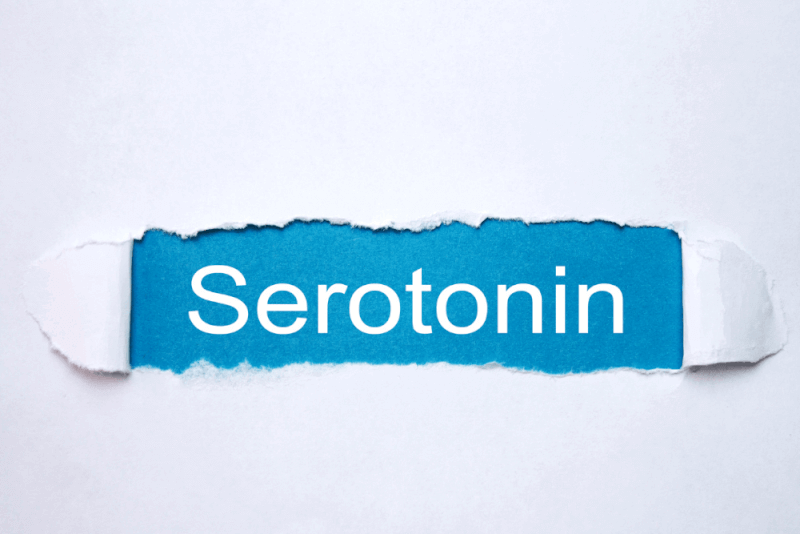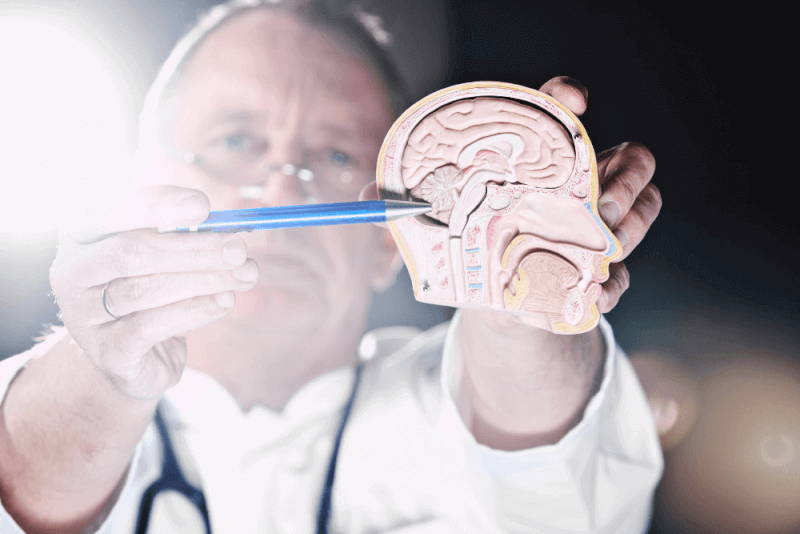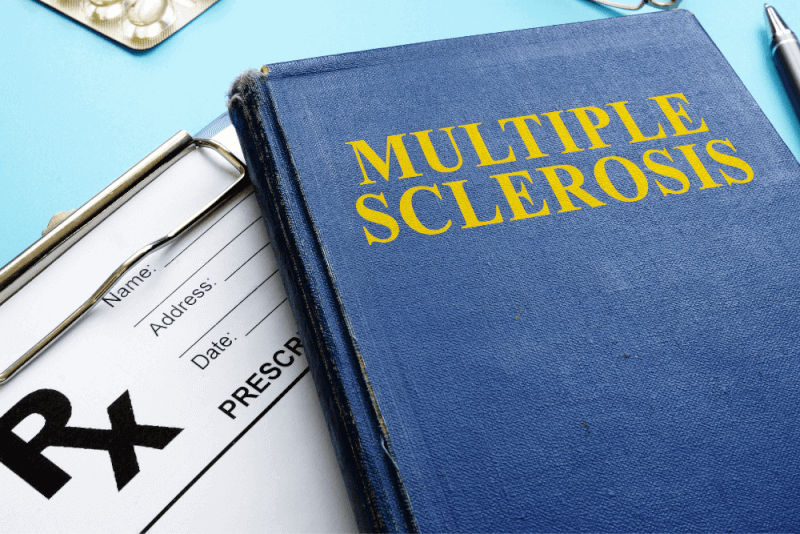What is Alzheimer's?
Alzheimer's disease, named after Dr. Alois Alzheimer, who first noticed changes in brain tissue at the autopsy of a patient with an unusual mental illness in 1906, is a disease that causes memory loss, language problems and unpredictable behavior. In the brain of the patient with these unusual symptoms, numerous abnormal clusters, now called amyloid plaques, were discovered. Mixed fiber bundles were also discovered in this review. These fiber bundles are now called neurofibers or tau nodes.
Alzheimer's disease is a disease that slowly affects memory, thinking skills and ultimately the ability to perform daily tasks. In the late-symptomatic form of Alzheimer's disease, the first symptoms appear after the age of 60. In the early-onset type, the first symptoms appear between the ages of 30 and 60. However, early-onset Alzheimer's disease is rare.
Plaques in the brain are still seen as the main cause of Alzheimer's disease, the most common type of dementia, which is the umbrella term for cognitive disorders. Today, however, the loss of connections between nerves in the brain is also recognized as a cause of Alzheimer's.
These damages are primarily seen in the memory-related parts of the brain, including the cortex and hippocampus. It is then seen in the cerebral cortex, which is responsible for language, reasoning and social behavior. In the late stages, this damage is seen in many areas of brain tissue.
Alzheimer's diagnosis
Various tools and methods are used to determine whether people with memory problems have Alzheimer's disease. These methods and tools include the following:
- Both the patient and the patient's relatives may be asked various questions about the patient's general health status, prescription and non-prescription medications, past medical history, diet, ability to carry out daily activities, changes in behavior and personality.
- Application of problem solving, memory, language and counting tests.
- Blood and urine tests to rule out other possible causes of problems.
- Undertake a range of tests to determine whether depression or other mental health problems are present and, if so, whether these factors have an impact on the problems experienced.
- Collection of cerebrospinal fluid or blood tests to measure protein levels associated with Alzheimer's disease
- Utilizing various imaging modalities to rule out other health problems and support a possible diagnosis of Alzheimer's disease
These tests can be repeated to determine how patients' cognitive functions change over time.
Causes of Alzheimer's
The cause of Alzheimer's disease has not been fully identified. But the changes in the brain are caused by brain proteins not working as usual. This disrupts the functioning of neurons in the brain. Disrupted neurons trigger a cascade of events. These events include damage to neurons and loss of connections between them.
Research by scientists shows that in addition to genetic predisposition, environmental factors and lifestyle also contribute to the risk of Alzheimer's disease. Therefore, in approximately 1% of cases, Alzheimer's disease is caused solely by genetic factors.
The changes in the brain caused by the disease appear years before the first symptoms appear. This damage occurs primarily in the area where memory is controlled. In the last stage of the disease, the brain shrinks significantly. Scientists focus on two proteins that may cause this damage.
Plaques
Beta-amyloids, which are part of a larger protein, have a toxic effect on neurons in the brain when aggregated together. This toxic effect causes the bonding between neurons to break down. These clumps then form into larger formations called amyloid plaques.
Tau nodes
Tau proteins are part of the transport system, which is responsible for carrying nutrients and other essential materials to brain cells. In Alzheimer's patients, however, tau proteins change shape. This change leads to the formation of structures called neurofibers. These structures cause disruption of the transport system and thus damage to cells.
Alzheimer's risk factors
Even if a person is genetically predisposed to Alzheimer's disease, there are some factors that contribute to the onset of the disease. The more exposure to these factors, the more likely a person is to develop the disease.
Age
The biggest risk factor for Alzheimer's disease is advancing age. The likelihood of Alzheimer's disease, which is not one of the typical symptoms of aging, increases in direct proportion to age.
Studies have shown that 4 out of every 1000 people between the ages of 65 and 74 are newly diagnosed. This rate increases to 32 per 1000 people between the ages of 75 and 84 and 76 per 1000 people over the age of 85.
Genetics
The presence of a first-degree relative with Alzheimer's disease significantly increases the likelihood of Alzheimer's disease. It is not yet clear which genes are involved in this genetic transmission.
Studies have shown that the risk is increased only in people with the APOE 4 gene, a form of the e(APOE) gene. This gene is found in approximately 25% of the population. However, not everyone who carries this gene develops Alzheimer's disease.
Another study found that people with one of the 3 genetically transmitted genes will definitely develop Alzheimer's disease. However, the number of people with Alzheimer's disease due to the gene is only 1% of all cases.
Down syndrome
A significant proportion of people with Down syndrome also have Alzheimer's disease. This is likely due to the fact that in the 21st century. A chromosome has three copies. Because 21. The chromosome is also a gene involved in the production of the protein that leads to the formation of beta-amyloid. These factors increase the likelihood of Alzheimer's disease in individuals with Down syndrome, while symptoms appear 10 to 20 years earlier than in the normal population.
Gender
Alzheimer's disease is more common in women than in men. This is probably because women tend to live longer than men.
Mild cognitive impairment
People with mild cognitive impairment have a greater decline in memory and cognitive abilities than their age. However, this does not affect their social and work life. However, people with mild cognitive impairment have a higher risk of developing dementia than the general population. Therefore, they need to adopt a healthy lifestyle and do more focus and memory exercises. In addition, they should also go to regular medical check-ups so that symptoms can be monitored regularly.
Head trauma
Many studies have shown an increased risk of Alzheimer's disease in people over the age of 50 who have suffered a head injury. Increased severity of head trauma or exposure to multiple head traumas further increases this risk.
Air pollution
Studies on air pollution and the nervous system are limited to animal experiments. However, these studies show that air pollutants such as exhaust and wood smoke increase the risk of dementia.
Excessive alcohol consumption
It has long been known that excessive alcohol consumption causes changes in the brain. Studies on dementia and alcohol consumption also show a link between early-onset dementia and excessive alcohol consumption.
Poor sleep patterns
People who have difficulty falling asleep or maintaining sleep are at increased risk of Alzheimer's disease.
Lifestyle and heart disease
Lifestyle factors that cause heart disease also lead to an increased risk of dementia. However, it is not known whether these factors are caused by Alzheimer's worsening changes in the brain or by changes in the brain vessels. Negative lifestyle factors include the following:
- Sedentary lifestyle
- Obesity
- Smoking cigarettes
- High blood pressure
- High cholesterol
- Poorly controlled type 2 diabetes
Alzheimer's symptoms
The most characteristic symptom of Alzheimer's disease is memory loss. In the early symptoms, patients have difficulty remembering conversations or events. As the disease progresses, memory deteriorates and other symptoms worsen.
In the early stages of the disease, patients may notice that they have difficulty remembering things. They may also have some problems thinking clearly. It is only as the symptoms progress that the patient's family or friends recognize the symptoms.
Symptoms caused by brain damage due to Alzheimer's include the following:
Memory
Everyone has difficulty remembering things from time to time. In Alzheimer's patients, however, memory problems are persistent and get worse. Over time, the memory loss they experience causes them to have problems at home or at work. Memory-related symptoms caused by Alzheimer's disease include the following.
- They may repeat statements or questions over and over again.
- They may have difficulty finding the names of objects.
- They forget conversations, events or appointments.
- They may have difficulty expressing their thoughts or speaking.
- They may misplace things. These places are often meaningless spaces.
- They may forget the names of family members and everyday objects.
- They can get lost in what they used to know well.
Thinking and reasoning
Alzheimer's disease causes difficulty in thinking or concentrating on abstract concepts, especially numbers. Patients may therefore have problems managing their finances or paying their bills on time. In the end, patients may not recognize the numbers and therefore may not be able to cope with them.
Judgment and decision-making
One of the conditions caused by Alzheimer's disease is that it prevents patients from making rational decisions in everyday situations. Examples of everyday events include patients making poor choices in social settings or not dressing appropriately for the weather. In addition, they may be unable to decide how to react to food burning on the stove or how to behave in traffic.
Plan and perform familiar tasks
For people with Alzheimer's disease, it can be a real challenge to carry out the tasks they perform every day, which consist of several steps. Examples of this include planning a meal or playing a board game. As the disease progresses, patients are unable to change their clothes or even take a bath.
Personality and behavior changes
Changes in the brain due to Alzheimer's can also lead to changes in mood and personality. The most common of these conditions are as follows:
- Depression
- Mood changes
- Loss of interest in activities
- Not trusting others
- Social withdrawal
- Anger
- Aggression
- Change in sleep habits
- Delusions
Alzheimer's treatment methods
Alzheimer's disease is a highly complex disease and there is no single approach or medication for its treatment. Studies on Alzheimer's disease continue to develop possible treatment options and tests that can be used in treatment.
Alzheimer's is not a fully treatable disease. However, there are medicines that can control the progression of symptoms caused by Alzheimer's disease. These medications can temporarily improve memory and thinking skills or help manage certain symptoms and behavioral problems.
In addition, various medications are used to relieve insomnia, depression, agitation and other behavioral symptoms caused by Alzheimer's disease. Apart from medicines, different approaches are used. In addition to medicines, various approaches are used in the treatment of Alzheimer's disease.
Acetylcholinesterase (AChE) Inhibitors
This group of medicines increases the level of acetylcholine, which helps nerve cells to communicate with each other. This group of drugs, which can only be prescribed by neurologists and psychiatrists, can also be administered on the recommendation of specialist doctors and by practitioners who are experts in this field.
The 3 different types of AChE inhibitors are not necessarily superior to each other. However, some patients respond better to some types. Some varieties also have fewer side effects in some people. In order for the side effects to disappear completely, it should be used regularly for 2 weeks.
Memantine
Used in patients with moderate to severe Alzheimer's disease, memantine is suitable for people who cannot tolerate AChE inhibitors. It blocks a chemical in the brain called glutamate. Side effects include dizziness, headache and constipation. However, these side effects are temporary.
Medicines to treat challenging behaviors
In the last stage of Alzheimer's disease, patients have behavioral and psychological symptoms. These symptoms are called BPSD. Aggression, agitation, anxiety and delusions are challenging for both patients and caregivers. coping strategies are used to relieve these symptoms. However, if this does not work, antipsychotic drugs can be used.
Antipsychotic drugs are used to prevent moderate to severe Alzheimer's patients from harming themselves or others. Patients must have an Alzheimer's report before these medicines can be used. Due to the serious side effects of antipsychotic drugs, they should be used at the lowest possible dose and in the shortest possible time frame.
If depression is suspected in patients with anxiety, some antidepressants may also be used. In some patients, different types of medication are also used to treat the specific symptoms of BPSD. These drugs are prescribed off-label.
Treatments including therapy and activities
In addition to medicines, some activities are also used in the treatment of Alzheimer's disease. This treatment includes various methods not only for patients but also for their caregivers.
Cognitive stimulation therapy
Cognitive stimulation therapy, also called CST, aims to improve patients' memory and problem-solving skills. Exercises for this purpose include group therapies.
Cognitive rehabilitation
Rehabilitation to help patients get the parts of their brains that are not working to work. These sessions range from daily activities such as using the telephone to vocational rehabilitation. Rehabilitation can be done with professionals or with relatives or friends.
Life story study
These therapies, also called reminiscence work, involve various conversations about past events. Favorite items, photographs and instruments such as music are often used.
All these treatment methods are used in combination in Alzheimer's disease. In this way, it is effective in improving the mood and well-being of patients.
Complications of Alzheimer's disease
The progression of Alzheimer's disease makes patients unable to control their health problems. For this reason, people with advanced Alzheimer's disease may experience difficulties in the following areas.
- They can't tell that you're suffering
- They have difficulty explaining the symptoms of other illnesses.
- They have difficulty in following the treatment plan.
- They have difficulty explaining the side effects of medication.
Changes in the brain of Alzheimer's patients also cause physical changes in the future. The most important of these effects is that bladder and bowel movements, balance, control and swallowing abilities are affected. These changes can cause the following problems.
- Mouth sores
- Health problems such as tooth decay
- Food and beverages escaping into the lungs
- Constipation
- Diarrhea
- Falling
- Dehydration
- Malnutrition
- Broken
- Bed sores
Stages of Alzheimer's
Alzheimer's disease is one of the progressive diseases. Therefore, it has various phases. At each stage, the brain damage and therefore the symptoms worsen. There are typically 3 stages of Alzheimer's disease. However, because the disease affects people differently, different symptoms may appear with different severity at different stages.
Early stage Alzheimer's (mild stage)
Patients in this stage are able to move independently. Therefore, they can still drive, work and socialize. However, they have difficulty remembering everyday words or objects.
Symptoms in patients at this stage may not be obvious. For this reason, it is also extremely difficult to diagnose patients at this stage.
Early stage symptoms
Since the severity of symptoms in the early stage is mild, patients can plan their future during this period. They can make financial decisions about themselves. In addition, symptoms that can be seen in early stage Alzheimer's patients include the following.
- Difficulty in finding the right word or name
- Inability to remember the names of new acquaintances
- Difficulty in fulfilling tasks in their social or professional life
- Failure to remember newly read material
- Losing objects of value or not remembering where you put them
- Having problems with planning and organization
Mid-stage Alzheimer's
Among the stages of Alzheimer's disease, the longest lasting stage is the middle stage. In addition to being the stage at which the characteristic symptoms of Alzheimer's disease are seen, it is also the stage at which home safety measures should be taken.
Symptoms of mid-stage Alzheimer's
Patients at this stage can still carry out their daily activities on their own. At this stage, however, ways to simplify the tasks need to be found. In addition, homes need to be made safer. Caregivers or day care centers can be considered for Alzheimer's patients at this stage.
Symptoms seen in mid-stage Alzheimer's patients include the following:
- Forgetting events or personal history
- Becoming socially withdrawn
- Being mentally pessimistic
- Inability to remember personal information such as address or phone number
- Being confused about where they are or the date
- Needing help choosing clothes for the season or for special occasions
- Difficulty controlling the bladder or bowels
- Daytime sleep
- Difficulty sleeping at night
- Increased tendency to wander and get lost
- Don't be skeptical
- Don't be delusional
- Repetitive behaviors
- Changes in personality and behavior
Late Stage Alzheimer's
Late-stage Alzheimer's, the last stage of the disease, is also called the severe stage. In this stage, Alzheimer's patients lose the ability to react to their surroundings, to maintain speech and, ultimately, to control their movements. Although individuals at this stage can still say words, they cannot express the pain and suffering they feel. Individuals start to need intensive care due to increased memory and cognitive symptoms.
Late Stage Alzheimer's Symptoms
Late-stage Alzheimer's patients require intensive care due to the symptoms seen in late-stage Alzheimer's patients. The most important part of this care is the use of methods that will help patients to calm down and feel peaceful. Symptoms that can be seen in Alzheimer's patients at this stage include the following.
- They are vulnerable to infections, especially pneumonia.
- They need 24-hour care to take care of their personal hygiene.
- Patients experience changes in and lose their physical abilities, including the ability to walk, sit and swallow.
- They have difficulty communicating
- They lose awareness of their surroundings.
Symptoms of Alzheimer's end-stage death
The rapid deterioration of the condition of Alzheimer's patients can occur several hours or days before death. Changes that can be seen in patients at this stage include the following:
- The changes experienced by the patient are very rapid
- Loss of consciousness
- Not swallowing
- Being agitated or restless
- Cold hands and feet
- Presence of wheezing in the breath or chest
The difference between Alzheimer's and dementia
Dementia is a general definition of cognitive impairment in people. Therefore, it does not describe a specific disease. There are many different diseases under the term dementia. One of these diseases and the most common one is Alzheimer's disease. Therefore, dementia can be considered as a main topic and Alzheimer's as a sub-topic.
Protected skills
Despite the profound changes caused by Alzheimer's disease, patients retain some abilities even in later life. These capabilities include the following:
- Reading a book
- Listening to the book being read
- Telling a story
- Sharing memories
- Singing
- Listening to music
- Drawing
- Making handicrafts
- Dancing

















